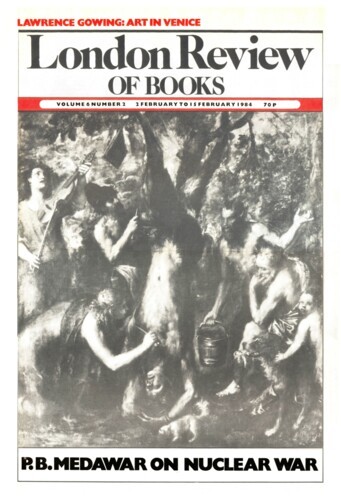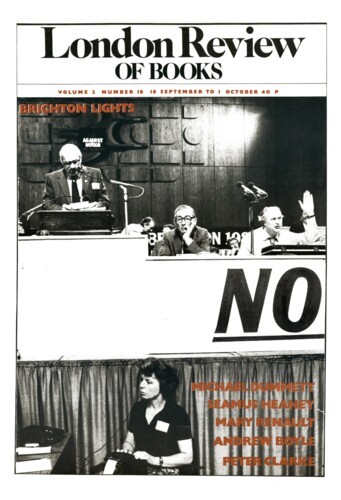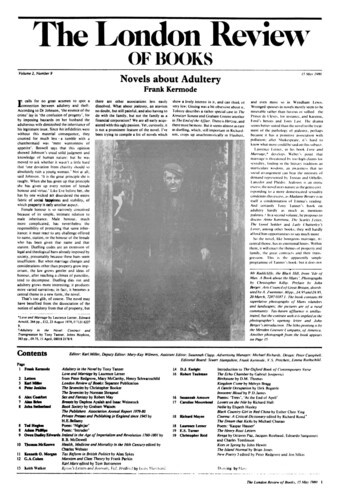Just Good Friends
Caroline Moorehead, 2 February 1984
When a Mafia suspect called Joseph Miceli Crimi led police, in March 1981, to an office safe in Castiglion Fibocchi, near Arezzo, which contained the names of prominent Italians and documents linking them to a series of dubious and highly confidential deals, the stability of the entire country came under threat. So, too, did the international institution of Freemasonry. The 962 people listed all belonged to a secret Masonic lodge, called Propaganda 2, and as Italian Freemasonry fell into disrepute, so the ripples of self-questioning spread outwards, to other Masonic brotherhoods. In France, there is now open discussion about Masonry’s close ties to the Socialists and speculation as to the part influential Masons played in the 1981 Elections. (The current French Grand Master is Air Force General Jacques Mitterrand, the President’s brother.) In America, it is widely known that 17 Presidents, including Ford and Reagan, have been Masons. The dollar bill bears not only the likeness of George Washington, who was initiated into Masonry in 1752, but the all-seeing eye, its symbol. Yet the precise nature of the Masonic bonds, the rituals exacted of its members, and indeed the very origins of the society, remain remarkably little explored.





